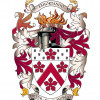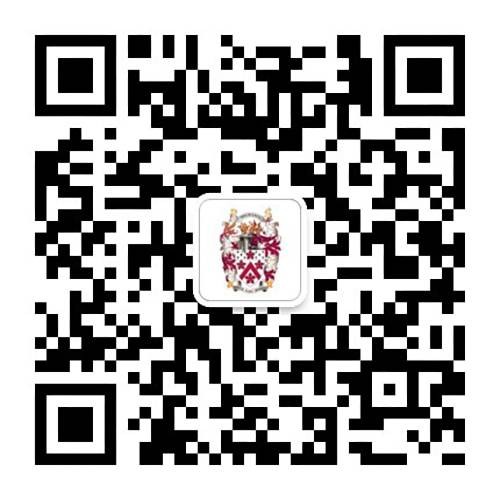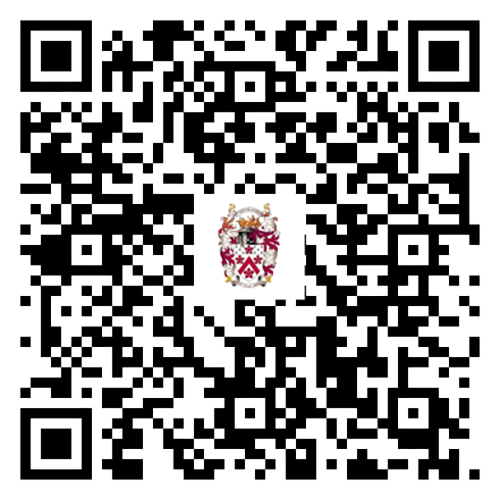How to navigate the tricky transition from Kindergarten to Primary School?
There are several key transitions in every child's educational journey. High school to university is one; primary to middle school is another.
But one of the most important moments - and one that gets far too little attention - is the transition from kindergarten to primary.

One reason why this is such a key moment is that the style of learning changes dramatically from the play-based learning of kindergarten to the whole-class learning of primary. Because so many life-long habits are formed at this time, getting this transition wrong can have a negative impact on a child's learning.
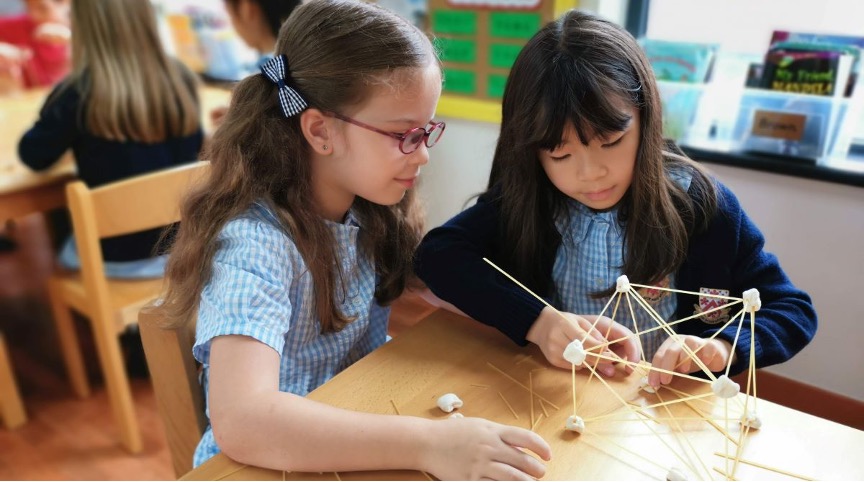
Years of research shows that young children learn best when they are guided toward learning outcomes based on their innate curiosity and interests under the guidance of caring and dedicated teachers. At our DUCKS kindergarten, this forms the heart of our play-based learning approach.
Shares Carol Dutch, Assistant Head of DUCKS, “Previously the concept of play was misunderstood and under-appreciated, written off as a precursor to ‘real’ learning. Thankfully, in recent years, the concept of an inquiry method has left no doubt that a play-based approach works.”
Eventually, however, every child will need to transition to a more formal educational format called "whole class" teaching and learning. Personalised attention from a dedicated teacher doesn't go away (at least at Dulwich Pudong it doesn't), but the way the learning is delivered changes as a necessary preparation for the demands of examination classes which will come in the future and as an expectation of universities and the world of work beyond.

Children transitioning from kindergarten to primary school are experiencing fundamental changes to their brains and bodies. This is the time when your bundles of joy and energy are becoming more mature, more thoughtful, more reflective, more independent little people.
Managing this transition well is key for expanding a child's horizons and setting them up for lifelong success.
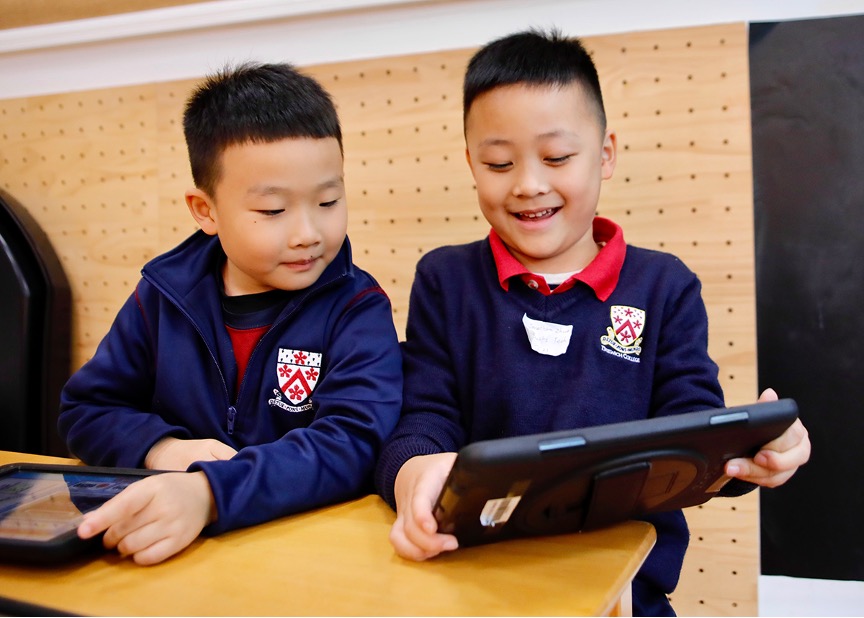
"Every child develops differently, but in general middle childhood, which is around 6-8 years old, brings significant changes in a child’s life," shares Jing Chen, Dulwich Pudong's Social and Emotional Counselor. "It's when they begin to demonstrate more independence. They pay more attention to friendships and really want to be liked and accepted by peers. Mental development is also rapid at this age. It's a critical time for children to develop confidence in all areas of their life."
How does this educational transition traditionally happen?
At many other schools, children are thrown into the deep end by simply being uprooted one day from their familiar Early Years environment and plopped down in a classroom - teacher at the front, desks and chairs facing forward, and a pile of homework due the next day.
For some students - a minority in our experience - this is perfectly fine. They adapt instantaneously. For others, however, it can be a disruption which can result in frustration, anxiety and apathy.
If you're the parent of a child of that age, you know how that plays out. You start hearing things like this all the time - "I don't like school, I don't like homework, I don't want to go to school" - and the next 12 years of parenting becomes a daily battle of wills.
At Dulwich Pudong we have a unique approach in which the transition from play-based learning to whole class learning ensures that each child is fully supported and empowered to take their first momentous steps into the world of higher education.
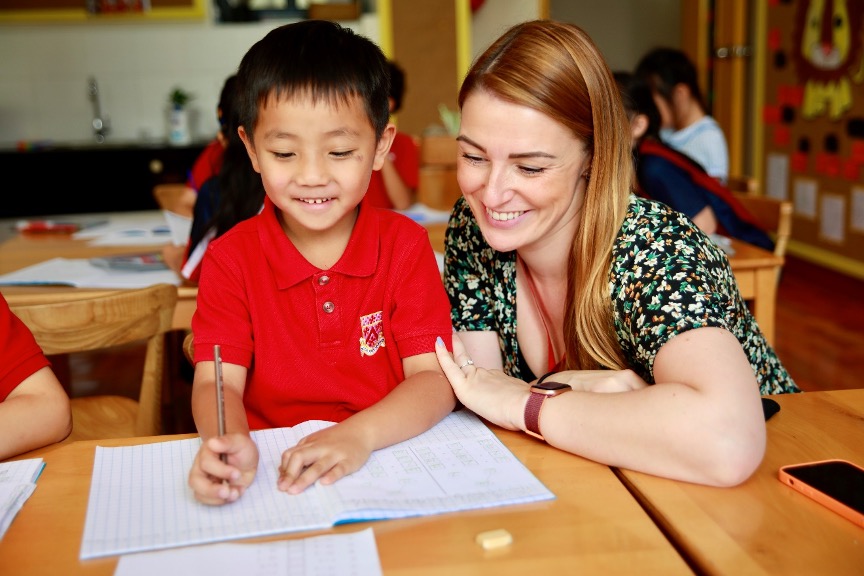
Sofie Finan, Deputy Head of DUCKS, shares, “We take a child-centred approach to this important transition, ensuring that each child is fully supported to thrive in the new learning environment.”
Our Transition Programme has five main pillars:
- Teaching and learning
- Wellbeing
- Curriculum
- Formal transition events
- Informal Whole College opportunities
Teaching and Learning
At DUCKS we take a gradual, staged approach to facilitate the transition from play-based learning to whole class learning.
Play-based learning prominently features Explorer Areas with carefully designed learning engagements called "provocations" which are usually highly tactile in nature.

In Year 1 (大班 in the local system), where we begin to introduce whole class learning, there is still ample Explorer Time for children to explore based on their own interests. When Year 1 children are not working in small groups with the teacher, they are free to independently follow their own interests and interact with purposeful provocations set up by the teachers.
In Term 2, children are given more formal whole classroom teaching time where they all sit down and learn together, but there is still Explorer Time. In Term 3 the time for more formal whole class teaching is increased to prepare them for Year 2.
In Year 2 (一年级 in the local system), which is predominantly carried out in the whole class learning format, our teachers still set up provocations in their classrooms thus providing a familiar touchpoint for children.
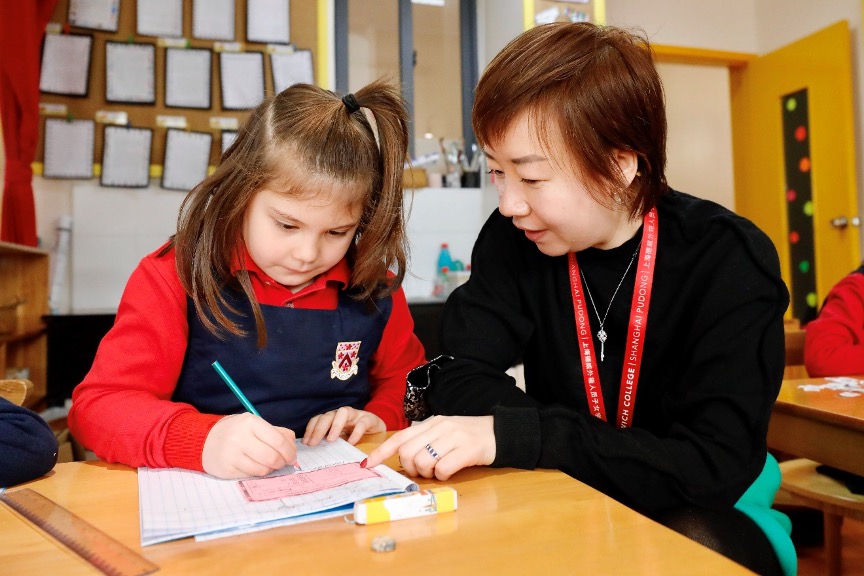
Finally and most importantly, the transition is facilitated by our Year 1 and Year 2 teachers who are uniquely skilled in blending both play-based and whole class approaches.
It is important for the school that Year 1 and Year 2 Teachers (particularly Year 1), have experience teaching in the Early Years programme. Many of their Year 1 and Year 2 teachers in fact come from an Early Years teaching background. For those Year 1 and Year 2 teachers who may not come from an Early Years background, the school implements Professional Learning to ensure that they have a solid understanding of play-based learning at DUCKS.
Wellbeing
Wellbeing at DUCKS is one of our top priorities. It is an essential part of our children’s learning to help them to achieve their best.
DUCKS has a holistic approach to supporting wellbeing which stems from the College's single wellbeing framework and single set of values.
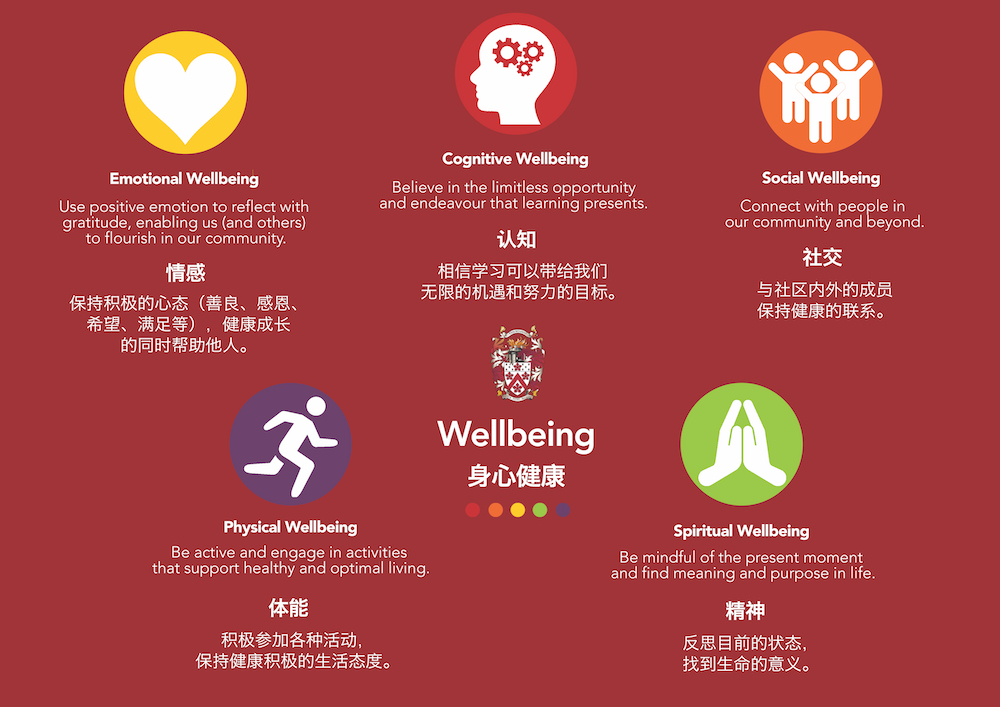
Equally as important, DUCKS teachers know the children deeply and personally; this is absolutely fundamental for the success of play-based learning. This knowledge is passed from teacher to teacher as the children move ahead from year to year.
Before a DUCKS child even steps into their new Junior School classroom, their teacher knows them well. This is key to accelerating learning. The time a teacher might otherwise have to spend getting to know a child is instead spent furthering their learning.
Curriculum
In DUCKS, the Early Years programme (Toddler to Reception), children follow the curriculum guidelines set out in the UK’s Early Years Foundation Stage (EYFS) and then from Year 1 to Year 9 all students at Dulwich Pudong follow the English National Curriculum modified for our international context.
The English National Curriculum is world-class and ambitious. It is articulated so that the skills and capabilities learned in Early Years link seamlessly to what the students are expected to learn in Junior School and Middle School, leading to the IGCSE program in Year 10/11 and culminating in the International Baccalaurate Diploma Programme in Year 12/13.
Formal Transition Programme
Our formal transition programme involves a sequence of events and activities for both children and for parents.
It starts in Reception and Year 1 when parents are offered an opportunity for a personalised tour of the Junior School on the Main Campus.
In Year 2, there is a formal schedule created to ensure that the Year 2 children are given many opportunities to visit the Junior School and understand what life will be like in Year 3.
Every year as the children move into another year group, they will participate in a transition morning, this involves them spending time in the year group they will be moving into in the next academic year.
At the end of the academic year/beginning of the new academic year, Year 2 teachers will meet with Year 3 teachers to share first-hand knowledge of each child's strengths and areas to develop. This includes not just the primary teachers but specialist subject teachers as well, thus ensuring that each child continues to learn at the appropriate level in all of their core subjects.
Informal Opportunities
Aside from the formal Transition Programme outlined above, there are numerous other opportunities for DUCKS students to engage with life at the Main Campus. This might be through the curriculum swimming programme which takes place in our Sports Centre pool, or as part of the Whole College Winter Concert or as part of a specific learning unit.
Winter Concert
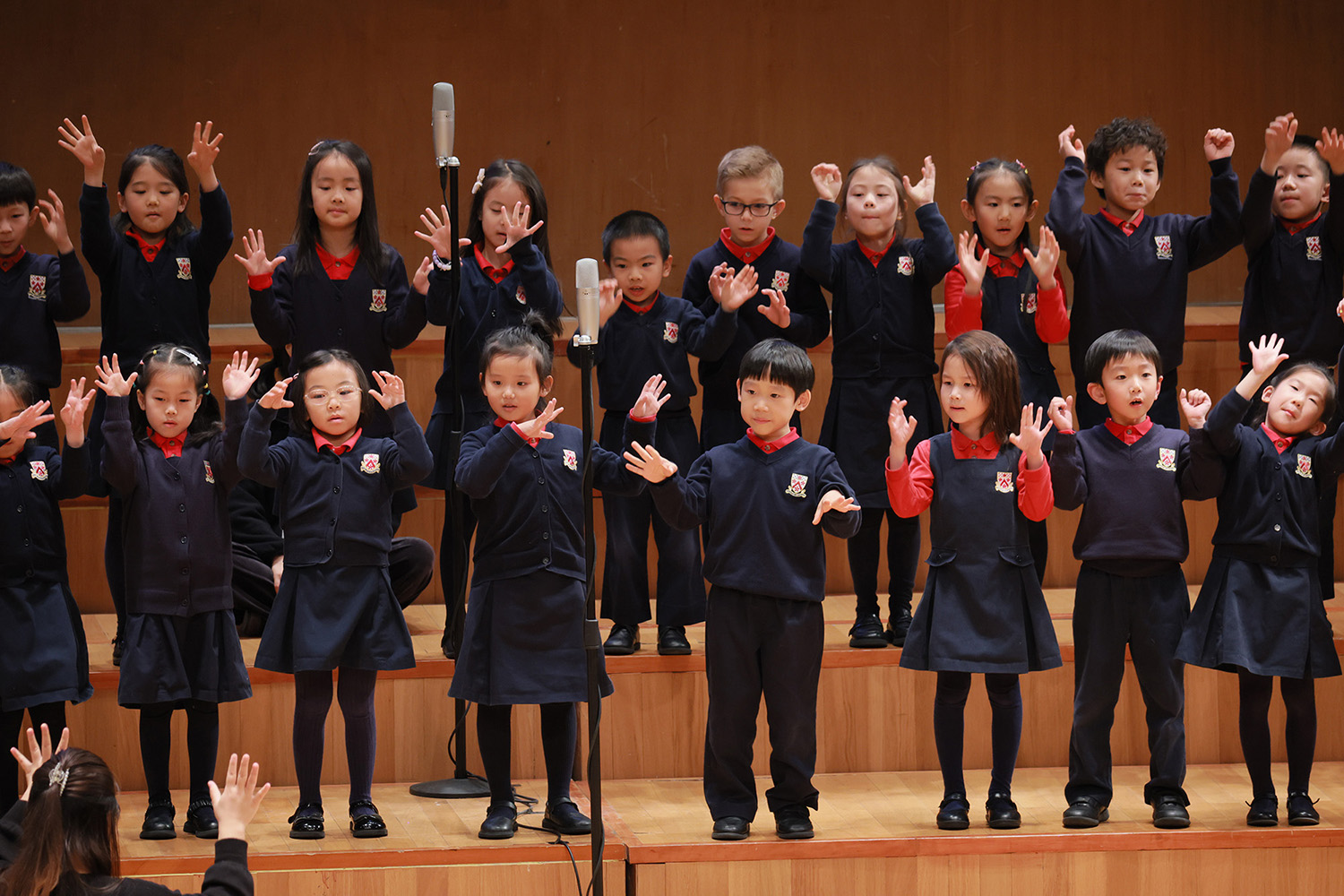 Our DUCKS choirs performing at the 2024 Winter Concert held at the Shanghai Oriental Arts Centre
Our DUCKS choirs performing at the 2024 Winter Concert held at the Shanghai Oriental Arts Centre
Life Cycle of a Plant
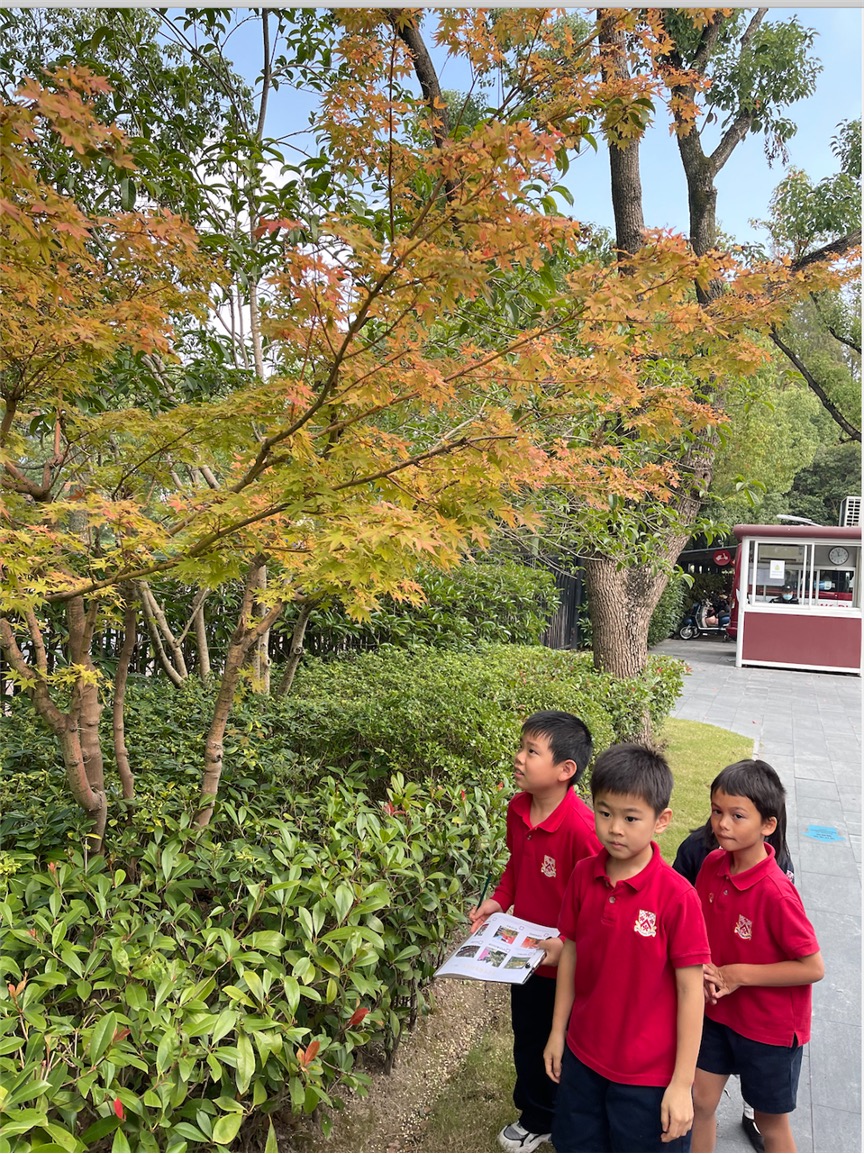 DUCKS students explored the Main Campus as part of their unit of inquiry on Life Cycles.
DUCKS students explored the Main Campus as part of their unit of inquiry on Life Cycles.
In addition, there are opportunities throughout the year for older students to come down to DUCKS to interact meaningfully with DUCKS students.
UN Day
For the last several years, as part of our United Nations Day observance across the College, Senior School students spent the day with DUCKS students working on themed projects. This year for example Year 7 students facilitated small-group sessions around the theme of Diversity.
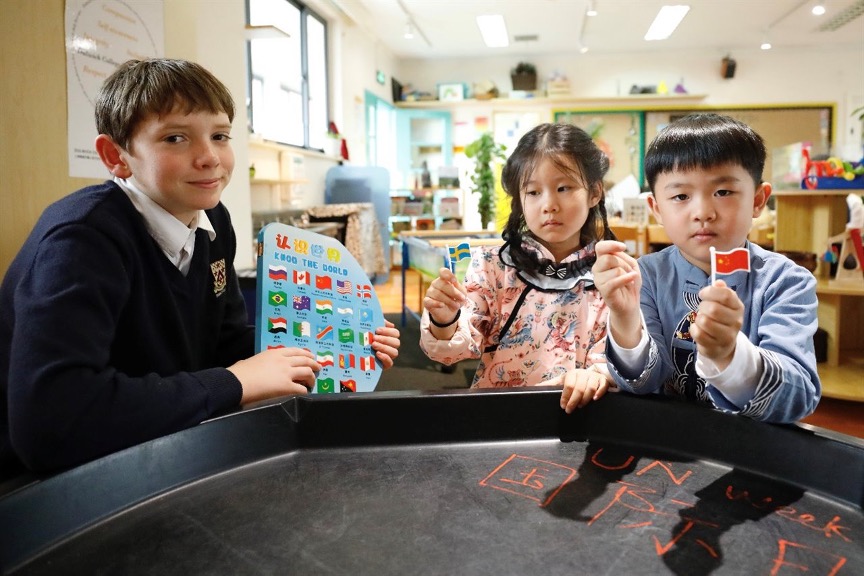
Tech Ambassadors programme
As part of the Senior School Tech Ambassador programme, Senior School students come down to DUCKS every month to spend time with their DUCKS tech ambassador counterparts (Tech Ambassadors is one of the Whole College student leadership programmes spanning DUCKS, Junior School and Senior School) to teach them about the latest EdTech tools as well as coach them on various aspects of digital safety.
Graduation Day
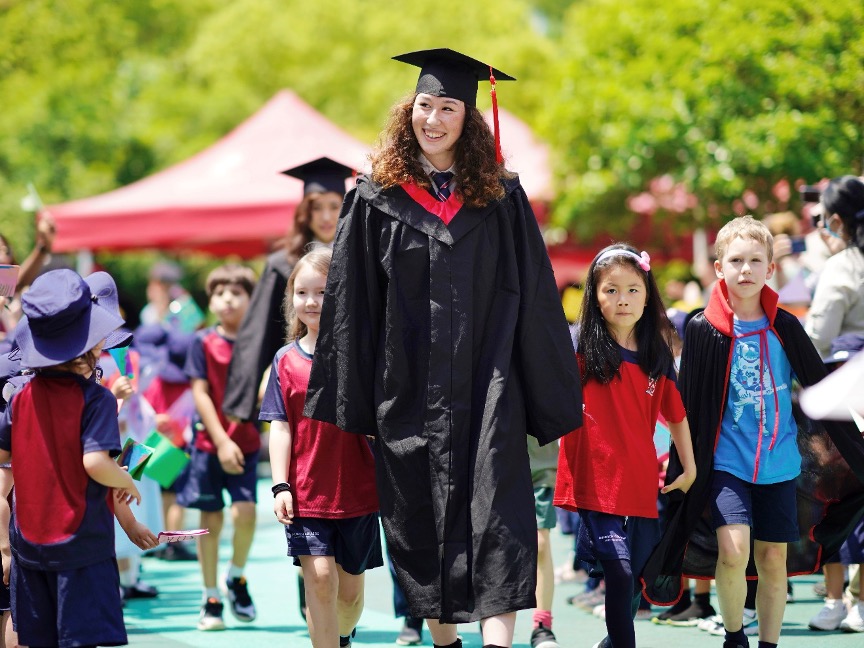
Finally, every Graduation Day, our Year 13 graduates begin their parade at DUCKS where DUCKS children welcome them to a special assembly. This is always a poignant moment, especially for those graduates who started their Dulwich journey at DUCKS.
All of these different ways help to make the transition a process which builds confidence for our DUCKS leavers and gives them a flying start in Junior School to come!
Summary
- The transition between Kindergarten and Primary is one of the most important moments of a child's future development.
- Just expecting young children to adapt to the more formal whole class learning can result in frustration, anxiety, apathy, and missed educational opportunities.
- Dulwich Pudong has 20 years of experience supporting the transition so that our Early Years students are poised to thrive in the opportunities which await them in the Junior School and beyond.




